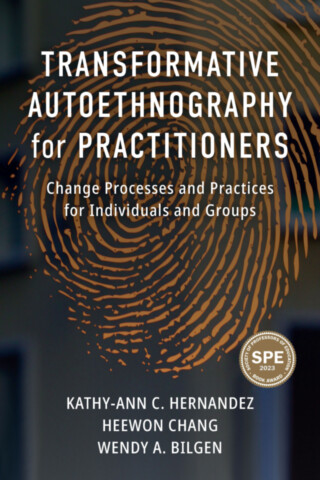Heewon Chang
Heewon Chang, PhD, is Professor at Eastern University, USA, and serves as the Chair of the PhD in Organizational Leadership program. Over 30 years in higher education, her teaching and research focus has expanded from education to organizational leadership. Despite the disciplinary shift, she has maintained her love for qualitative research, justice-oriented scholarship, the global mindset for cultural diversity and multiculturalism, systems thinking for organizations and leadership, and basic and higher education. Her teaching at the undergraduate and graduate levels reflect her scholarly commitment to these topics. Besides teaching she enjoys providing mentoring to students through dissertation advising and fellow scholars through journal editing. In addition to helping over 20 students complete their dissertation journeys, she founded two academic journals, including the International Journal of Multicultural Education. As Editor-in-Chief for 20 years, she had the privilege of working with over a thousand authors who pursued educational equity for diverse students in various global contexts. She has published four books, including Adolescent Life and Ethos (1992), Autoethnography as Method (2008), Spirituality in Higher Education (2011, co-edited), and Collaborative Autoethnography (2013, co-authored). Among various articles and book chapters she has published, some on the topic of autoethnography have appeared in Qualitative Health Research (2016), Journal of Autoethnography (2020), Handbook of Autoethnography (2013; 2022), and Handbook of Sociological Ethnography (2022). She still wakes up every day with a belief that our world would be a better place if we care for the self with the consideration of others and our collective environment.
Books by Heewon Chang:

A 2023 SPE Outstanding Book Award Winner
Can transformation be the primary goal of autoethnographic research? In this book, the authors present a compelling case that this is indeed possible. Since autoethnography first appeared as a nascent approach to social inquiry, much has been written about it as a useful addition to the field of qualitative research methods. Over the years, its usage has been extended across various disciplines including the humanities, human services, social sciences, leadership studies, engineering, education, counseling, and even medical education. Notably, the primary function of autoethnography to advance our understanding around sociocultural phenomena has been increasingly paired with a parallel function of the many ways in which this research method can also contribute to practice. However, though its contribution to scholarship is well documented, less has been written about its practical usage as the focal point of inquiry. Yet there is growing evidence that one of the emerging strengths of autoethnography is its transformative capabilities. In Transformative Autoethnography for Practitioners, Hernandez, Chang and Bilgen turn the spotlight on autoethnography as a tool for practitioners where the primary goal is to solve real world problems by facilitating transformational change at the individual, group and/or organizational levels. They draw on existing scholarship as well as their collective work and expertise to provide a Transformative Autoethnographic Model (TAM) for use by practitioners who are intent on effecting such changes in their respective contexts.
The book contains seven chapters. Chapters One through Three provide the theoretical grounding for a transformative autoethnography model. Chapter One begins with a broad overview of autoethnographic research and the unique characteristics of this method that makes it especially suited for effecting transformational learning. In chapters Two and Three, the authors provide a quick review of the literature relevant to individual autoethnography and collaborative autoethnography respectively. Each chapter discussion is centered around explicating the transformative elements of the method as well as how it is able to effect change at the individual, group, and organizational level. Chapters Four through Six focus on the praxis of transformative autoethnography. In Chapter Four, the transformative autoethnography model (TAM) is presented in detail and templates are provided for its application. Chapters Five and Six show the application of the TAM in a variety of settings. The book ends with a final chapter discussion on the continuing evolution of autoethnographic explorations, as well as future applications for the TAM model in a fast changing digital landscape.
Perfect for courses such as: Research Methods in the Social Sciences | Qualitative Research Methods | Narrative Research | Advanced Qualitative Research Methods | Coaching and Consulting | Leading Change
Library E-Books
We are signed up with aggregators who resell networkable e-book editions of our titles to academic libraries. These editions, priced at par with simultaneous hardcover editions of our titles, are not available direct from Stylus.
These aggregators offer a variety of plans to libraries, such as simultaneous access by multiple library patrons, and access to portions of titles at a fraction of list price under what is commonly referred to as a "patron-driven demand" model.
E-books are now distributed via VitalSource
VitalSource offer a more seamless way to access the ebook, and add some great new features including text-to-voice. You own your ebook for life, it is simply hosted on the vendor website, working much like Kindle and Nook. Click here to see more detailed information on this process.



